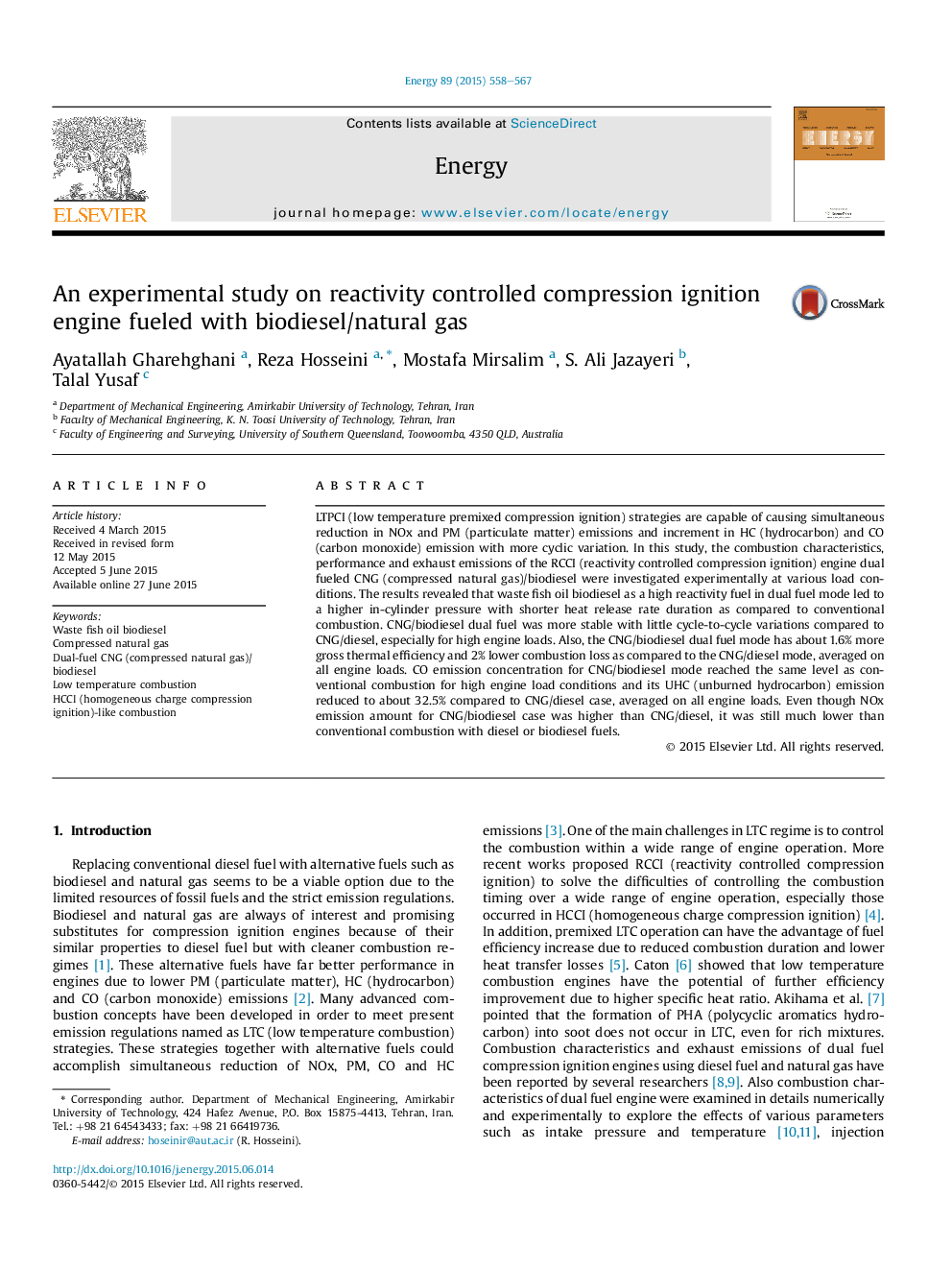| کد مقاله | کد نشریه | سال انتشار | مقاله انگلیسی | نسخه تمام متن |
|---|---|---|---|---|
| 1731930 | 1521457 | 2015 | 10 صفحه PDF | دانلود رایگان |
• CNG/Biodiesel leads to higher cylinder pressure together with shorter heat release.
• The combustion in CNG/biodiesel is more stable than CNG/diesel at high engine loads.
• Gross efficiency in CNG/biodiesel is 1.6% higher than CNG/diesel averagely.
• CO emission in CNG/biodiesel mode reached the same level as CC at high engine load.
• UHC reduces to about 32.5% compared to CNG/diesel, averaged on all engine loads.
LTPCI (low temperature premixed compression ignition) strategies are capable of causing simultaneous reduction in NOx and PM (particulate matter) emissions and increment in HC (hydrocarbon) and CO (carbon monoxide) emission with more cyclic variation. In this study, the combustion characteristics, performance and exhaust emissions of the RCCI (reactivity controlled compression ignition) engine dual fueled CNG (compressed natural gas)/biodiesel were investigated experimentally at various load conditions. The results revealed that waste fish oil biodiesel as a high reactivity fuel in dual fuel mode led to a higher in-cylinder pressure with shorter heat release rate duration as compared to conventional combustion. CNG/biodiesel dual fuel was more stable with little cycle-to-cycle variations compared to CNG/diesel, especially for high engine loads. Also, the CNG/biodiesel dual fuel mode has about 1.6% more gross thermal efficiency and 2% lower combustion loss as compared to the CNG/diesel mode, averaged on all engine loads. CO emission concentration for CNG/biodiesel mode reached the same level as conventional combustion for high engine load conditions and its UHC (unburned hydrocarbon) emission reduced to about 32.5% compared to CNG/diesel case, averaged on all engine loads. Even though NOx emission amount for CNG/biodiesel case was higher than CNG/diesel, it was still much lower than conventional combustion with diesel or biodiesel fuels.
Journal: Energy - Volume 89, September 2015, Pages 558–567
